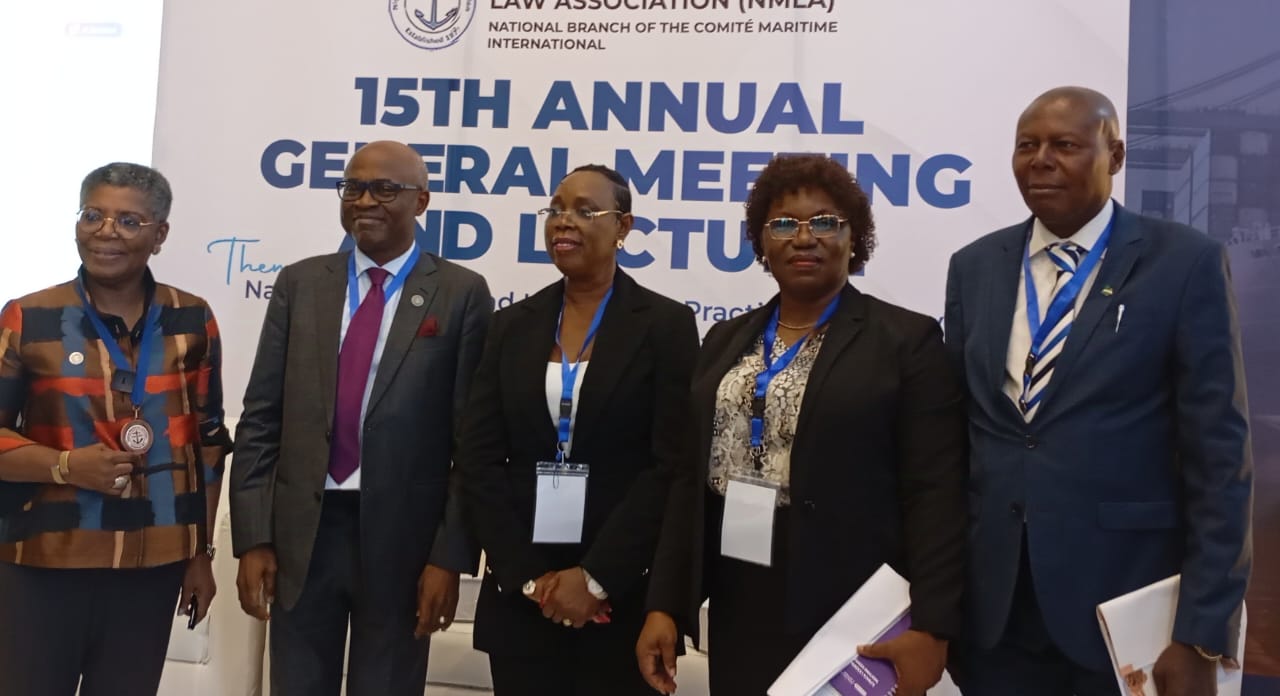
The Nigerian Maritime Law Association (NMLA) on Friday reiterated its commitment to improving maritime laws and practices in the country to boost confidence in Nigeria’s position within the international shipping trade.
NMLA President, Ms Funke Agbor, made this commitment at the association’s 15th Annual General Meeting (AGM) in Lagos.
The theme of the event is, “Navigating Policy and Innovation: Practical Pathways to a Green Future for Nigeria’s Maritime Sector,” brought together stakeholders to discuss policy advancements and innovations for the sector.
“Today, we gather with a shared purpose: to reflect on our achievements, address the challenges ahead, and reinforce our commitment to enhancing maritime law and practice in Nigeria,” Agbor said.
She highlighted the association’s role in promoting a robust legal framework, advancing legal reforms, and fostering best practices to support sustainable growth and development in the maritime sector.
Agbor noted that the association remained focused on enhancing the capacity of Nigeria’s legal and judicial systems in maritime law, adopting forward-thinking policies, and aligning with international conventions.
“Through these efforts, we aim to support Nigeria’s aspirations to become a regional leader in maritime operations and governance,” the Senior Advocate of Nigeria (SAN) said.
She also underscored the importance of this year’s AGM, which featured panel discussions on critical areas such as: judicial sale of ships,
sustainable ship recycling and
cybersecurity in the maritime sector.
“These discussions will guide our efforts to ensure Nigeria remains competitive and compliant with global maritime standards,” Agbor added.
She urged attendees to make the AGM a platform not only for knowledge sharing but also for advancing Nigeria’s maritime sector through actionable outcomes.
Earlier, the CEO of the Nigerian Shippers’ Council (NSC), Mr Pius Ukehima, commended the NMLA’s role in shaping maritime law and policy in the country.
He noted that the AGM theme aligns with the NSC’s objectives of building a resilient and sustainable maritime sector.
Ukehima highlighted the African Continental Free Trade Area (AfCFTA) as a game-changer for Nigeria’s maritime industry, creating unprecedented opportunities through enhanced intra-African trade.
“AfCFTA provides a platform to tap into larger markets, positioning Nigeria as a vital hub for regional trade,” he said.
The NSC, he added, is working to eliminate non-tariff barriers and streamline regulatory processes to facilitate smoother and more cost-effective cargo movement across Africa.
He also emphasised the NSC’s commitment to promoting environmental sustainability through regulatory reforms that support cleaner fuel alternatives, renewable energy investments, and eco-friendly port operations.
“Our role as the Port Economic Regulator is to set industry standards and encourage practices aligned with Nigeria’s environmental commitments,” Ukehima















